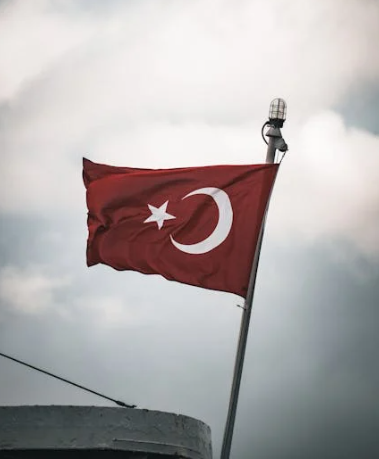Introduction to the Turkish Political Landscape
Ankara, Turkey, is currently the focal point of significant political developments as the nation gears up for a crucial presidential runoff election on May 25. Opposition leader Kemal Kılıçdaroğlu has recently received a significant endorsement from the six parties that constitute the Nation Alliance, a coalition aimed at countering the long-standing rule of incumbent President Recep Tayyip Erdoğan. The unity displayed by this coalition marks a pivotal moment in Turkey’s political history, as it seeks not only to dethrone Erdoğan but also to reinstate a parliamentary democracy and restore stability in the country.
Kılıçdaroğlu’s Vision for Turkey
During a joint press conference with leaders from the Nation Alliance, Kılıçdaroğlu articulated a vision that extends beyond merely defeating his rival. “This is not just about one man versus another; it’s about the future of our democracy and the values we stand for,” he emphasized. His approach underscores a commitment to restoring democratic principles, strengthening the judiciary, and addressing pressing economic issues. The collective strategy of the alliance includes a concerted effort to mobilize undecided voters, manifesting their belief that together they possess the power to affect meaningful change.
Nation Alliance’s Unified Strategy
The Nation Alliance is an eclectic coalition comprised of diverse political ideologies, ranging from secularists to conservative factions. The leaders of the coalition, including Meral Akşener of the Good Party (İYİ), have publicly stated their commitment to setting aside internal differences in the pursuit of a stable governance model for Turkey. As Akşener noted, “This is a historic moment for Turkey.” The alliance recognizes the urgent need to galvanize voter turnout and energize those who may still be undecided, as the outcome of the runoff will significantly influence Turkish democracy moving forward.
Challenges Facing Kılıçdaroğlu
Despite the newfound solidarity, Kılıçdaroğlu confronts unique challenges in his campaign. His coalition encompasses a wide spectrum of voters; thus, maintaining a delicate balance in messaging is imperative to avoid alienating crucial constituencies. Recently, he has adopted a firmer stance on immigration to appeal to nationalist voters who supported third-party candidate Sinan Oğan in the first round of voting. “We hear your concerns, and we will address them,” Kılıçdaroğlu stated, showcasing his intention to prioritize national security alongside democratic values.
Erdoğan’s Counter-Offensive
In response to the opposition’s show of unity, Erdoğan held a rally in Istanbul to reinforce his leadership credentials. With 47.2% of the first-round vote, he framed the coalition as “built on sand,” asserting that only his brand of strong leadership can guarantee stability and security in Turkey. Erdoğan’s discourse focuses on his accomplishments in infrastructure and defense, appealing directly to his conservative and nationalist voter base. “Now is not the time to gamble with our future,” he declared, urging voters to remain loyal to his vision for Turkey.
Demographic Dynamics and Their Impact
As the election date draws near, both candidates are actively courting undecided voters, especially those who supported Oğan in the preliminary round. Oğan’s endorsement could prove pivotal in tipping the scales in favor of either candidate. Political analysts like Dr. Esra Yılmaz underscore the significance of Oğan’s supporters, stating that “They hold the balance of power.” Additionally, youth voters represent another crucial demographic, with many expressing dissatisfaction with Erdoğan’s prolonged rule and its accompanying economic challenges. Kılıçdaroğlu’s campaign has actively sought to engage this segment through targeted outreach and pledges for economic reform.
International Perspectives on the Election
The impending election has drawn significant international attention, particularly from Turkey’s geopolitical partners and rivals. The European Union and the United States have voiced hopes for a peaceful democratic process, while Russia’s position remains more ambiguous, reflecting its strategic alliance with Erdoğan. Dr. Henri Barkey, a noted expert in international relations, highlights the broader implications of the election: “It will shape Turkey’s foreign policy, its role in NATO, and its relationships with both the West and regional powers.”
Conclusion
As the Turkish electorate heads toward a pivotal runoff election, the stakes are exceptionally high. With diverse ideas and constituencies represented by both Kılıçdaroğlu and Erdoğan, the outcome will likely shape the future trajectory of Turkey’s political landscape. The Nation Alliance’s unified front presents an intriguing challenge to Erdoğan’s long-standing dominance, suggesting an era of potential change. With the race still highly competitive, both camps are ramping up their efforts to galvanize support, and the world looks on with anticipation as Turkish voters prepare to make their choice.
FAQs
What is the Nation Alliance?
The Nation Alliance is a coalition of six opposition parties in Turkey, unified for the purpose of contesting President Erdoğan in the 2023 election. It includes a range of political ideologies, from secular to conservative factions.
What are the main issues facing the candidates in the runoff?
Key issues include Turkey’s economic challenges, the state of democracy, immigration policies, and national security. Both candidates are striving to appeal to undecided voters and specific demographic groups.
How does the outcome of this election affect Turkey’s international relations?
The election’s outcome could significantly influence Turkey’s foreign policy, its role within NATO, and its relationships with Western allies and regional powers.
Who are the key voter demographics to watch in the upcoming election?
Important voter groups include undecided voters, supporters of third-party candidates like Sinan Oğan, and youth voters disillusioned with the current administration’s policies.

